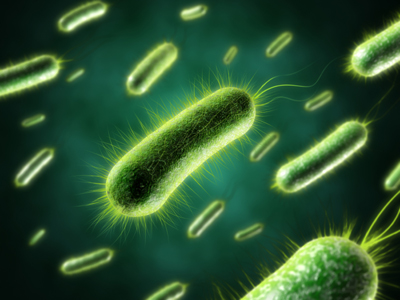
Biology - Superbugs (AQA)
In GCSE Science, the requirements for keeping healthy is one of the topics looked at. This is the last of six quizzes on that subject and it looks in particular at strains of bacteria which are resistant to antibiotics - otherwise known as 'superbugs'.
Antibiotics have been in use since a team, led by scientists Howard Florey and Ernst Chain, worked out how to produce penicillin in useful quantities. Since then penicillin and other antibiotics, like amoxycillin and flucloxacillin, have saved countless millions of lives.
Unfortunately, owing to the over-use and unnecessary use of these amazing chemicals, bacteria have started to appear that are resistant to antibiotics. One of the best known is MRSA. This strain of bacteria is also resistant to other antibiotics and so is a problem in hospitals. The British press decided to call bacteria resistant to antibiotics 'superbugs' and this nickname stuck.
_________ are one cause of variation in a population of bacteria. A course of ____________ will kill off the non-resistant bacteria leaving ____________ bacteria to multiply. If these escape from the patient it is possible they can _______ others with bacteria that are not killed by antibiotics.
Ready for more?
not all...
quizzers. Try to win a coveted spot on our Hall of Fame Page.







